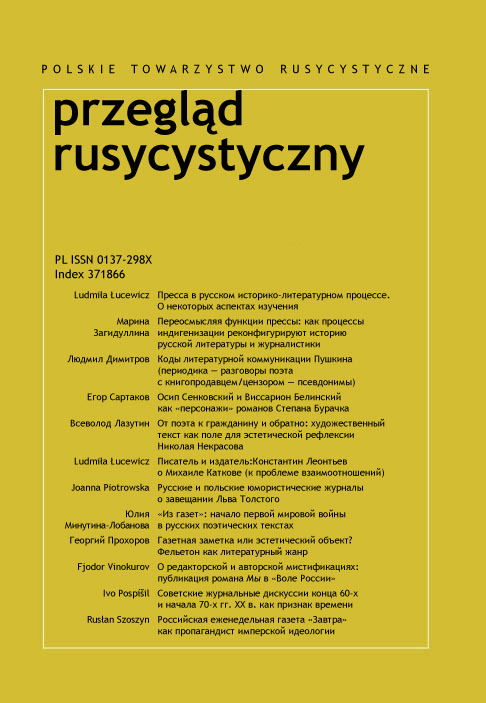К вопросу о русских эквивалентах чешских устойчивых глагольно-именных словосочетаний с глаголом mít
On Russian equivalents of Czech lexicalised verbo-nominal constructions with verb mít
Author(s): Jan GregorSubject(s): Language and Literature Studies
Published by: Polskie Towarzystwo Rusycytyczne
Summary/Abstract: Under the concept of lexicalised verbo-nominal constructions (VNC’s), e.g. mít vliv — иметь влияние, mít problémy — испытывать проблемы, the author understands set phrases consisting of a formal verb followed by an abstract noun. The paper deals with the possible ways of expression of the various semantic nuances of Czech VNC’s based on the formal verb mít by means of different verbal equivalents as part of Russian VNC’s. Among formal verbs occurring in the Czech VNC’s, the verb mít (with a very large meaning) is absolutely dominant — it accounts for approx. 30% of all the expressions. However, the only original Russian equivalent of the present verb, the verb иметь, is far less widespread in general Russian and in the Russian VNC’s as well (the Czech verb mít is about six times more frequent). Instead of (or sometimes in parallel with) the verb иметь, other semantically more specific verbs are often used (notably, носить, обладать, пользоваться etc.). The conception suggested and discussed apparently represents the first attempt of its kind. The results obtained can be directly applied to methods used especially for the effective and comprehensive presentation and acquisition of these structures as well as in translation and interpretation practice. An analogical comparison with the Russian language may be carried out in other languages, e.g. in English, German, Polish, Slovak etc.
Journal: Przegląd Rusycystyczny
- Issue Year: 2006
- Issue No: 115
- Page Range: 31-40
- Page Count: 10
- Language: Russian

